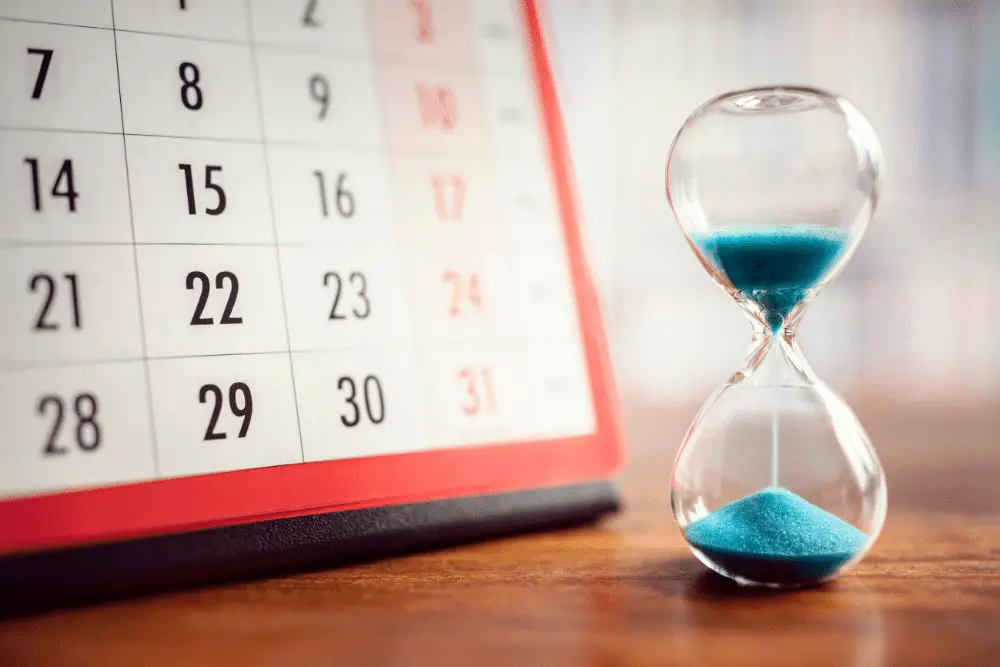Do you really need to tune your piano often?
How little is too little for acoustic piano tuning?
I get it; we’ve all been there. Sometimes getting a piano tuned is a pain.
But this doesn’t mean you, a good piano owner should avoid it. In fact, you’re less likely to improve on an out-of-tune piano because you won’t enjoy it as much.
Still, it can get expensive to tune an acoustic piano, so in this article, we’ll help you figure out the true answer to this commonly asked question.
Table of Contents
How Often Should You Tune A Piano?
The easy answer is you need to tune your piano whenever you notice it’s out to tune. However, most piano experts recommend tuning it 1-3 times per year. This keeps the strings “trained” in their proper tension and prevents long-term problems from occurring.
Hey! Want to learn thousands of songs with amazingly simple and effective online tools? Check out FlowKey.
Why Tune My Piano So Often?
When a person gets their piano tuned by a qualified piano tuner, it’s not just to make the piano sound better.
Piano tuning is a major part of keeping the instrument in good health.
Qualified piano tuners aren’t just people who tune pianos; it’s better to think of them as piano technicians.
They’ll get inside your piano and notice if there are any major problems with the structure or condition of the instrument.
Piano tuning isn’t just about making the notes sound good. The adjustments keep the string tension where it needs to be.
If you leave your string out of tune for a long time (I’m talking months, not just weeks), your strings will adjust to this as the new normal.
Then, it’ll take twice as many tunings to get it back where it needs to be.
Speaking of piano care, you may want to look at our article on how to clean piano keys.
Recommendations For How Often To Tune A Piano
A blanket statement for tuning the piano strings is a good rule of thumb, but there are circumstances when you want more contact time with your piano technician.
Use this chart for when you need a tune-up.
| Situations | Recommendation |
| Play rarely or every once in a while. | 1-2 times per year. |
| Play weekly. | 2-3 times per year. |
| Play 30-60 minutes every day. | Every 3-4 months. |
| Play for multiple hours per day. | Every 1-2 months. |
| Big change in temperature. | Tuned after. |
| You move the piano a far distance*. | Tuned after. |
Note: Keep in mind, you should always tune once per year at a minimum, even if you barely play it.
How Can I Help Keep My Piano In Tune?
The steel strings in a piano respond to almost any change. The changes will cause the strings to lose their proper pitch.
Piano manufacturers can only do so much with the design of their keyboard instruments. But a good design will hold its pitch longer.
Then again, the best and fanciest pianos end up being extra-sensitive to changes.
Here are some tips for helping keep your piano in tune and maybe saving some money:
- Use a piano humidity control system in the room it’s stored. (50-60% relative humidity control is just fine).
- Avoid moving it at all.
- Don’t pound on the piano keys or the piano body.
- Avoid direct sunlight (especially in summer), as this will heat the strings up quickly.
- Don’t place near heating units (fireplaces, heaters, etc.) or air conditioning.
- Don’t touch the tuning pins. Even the slightest of the tuning pin will make the notes go off.
- Never adjust the tuning pins yourself. You don’t work in piano care or piano service; don’t try it unless you know what you’re doing. (If you don’t know what tuning pins are, don’t even think about it.)
- Place away from all potential changes in the elements.
Do this, and you may avoid some of the tuning, but it’ll still need tuning on a regular basis. Any professional pianist with any skill knows how critical tuning stability is to good playing.
If piano owners neglect their piano, they’ll never achieve such tuning stability.
Of all the tips, indoor humidity and temperature fluctuations are the most important to avoid.
But with proper care, piano players such as you may save quite a bit off the price of regular tuning without losing the benefits of a well-tuned keyboard.
Do I Need To Tune An Electric Keyboard?
No, you don’t need to tune an electric keyboard. This is one of its main benefits. However, you may notice the pitch getting off as the battery dies or the keyboard ages.
With an electric keyboard, you won’t need to worry about a humidity control system, humidity levels, or the changing temperatures of the seasons messing with the perfect pitch.
The downside of keyboards is that most of them lack a beautiful sound compared to an actual piano.
Still, there are some great ones out there.
If you’re looking for a few recommendations, here are two I always support.
The RockJam 88 key piano keyboard is a great, affordable substitute for a “real” piano.
It has a great sound and is semi-weighted, so you don’t need to exert a lot of pounds of pressure to play, but you still get some help with the feeling of the keys.
For those who want the clarity of a grand piano with the price and durability of a keyboard, the Yamaha DGX660B is for you.
Again, these are simple suggestions, but if you want to avoid tuning altogether, I encourage you to check them out.
You may also enjoy learning how to practice piano.
Final Thoughts
Tuning your piano 2-3 times per year may be more than you want, but if you’re going to put your hands on a piano, you MUST have it in tune to standard pitch.
With proper care and storage (away from dampness, direct sunlight, etc.), it’ll last a little longer. But it’s good to have your local piano dealer send a tuner in.
They’ll check your instrument out and keep it in tune for you. Believe me, the effects are well-worth the purchase, making this an excellent investment in your instrument.
On a side note, I can’t stop raving about Flowkey.
I’ve been teaching music for over 10 years, and I’ve been skeptical of online learning programs.
They’re nice and all, but not very effective.
Flowkey is something completely different.
Master the piano with their gigantic library and intuitive learning tools and courses.

